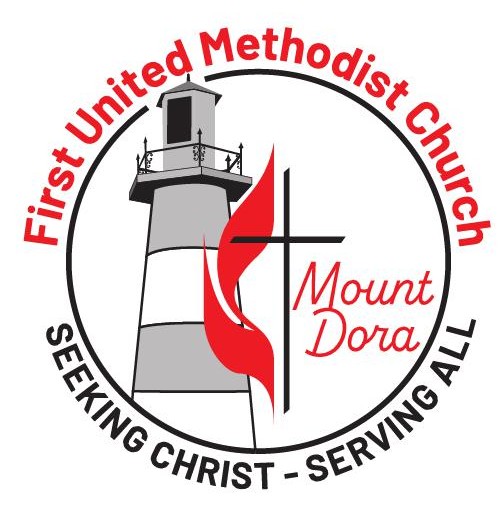Dear First United Methodist Church of Mt. Dora,
It is good to be back in Mt. Dora after a 13-day pilgrimage in Greece and Turkey, following the footsteps of the Apostle Paul.
God challenged the thirteen of us who participated in this journey, and inspired us by the Holy Spirit with new knowledge and insight about our faith in Jesus Christ.
I was challenged by one of my fellow pilgrims to summarize the learnings of our journey in three points. I want to share with you my response.
A.) The network of Roman Roads helped the spread of the Gospel: In Thessaloniki and Kavala (ancient Neapolis), we had the opportunity to trace the route of the Via Egnatia. It is a Roman road that Paul used in his 2nd and 3rd missionary journeys. The network of Roman roads and shipping lanes (by sea) allowed for the Gospel to spread rapidly among the Jewish Diaspora and the Gentiles in the 1st century AD. The Greco-Roman world of the 1st century AD was the ideal time and place for God to expand the covenant to the Gentile world.
A picture of a monument along the Via Egnatia.
B.) The message of Christianity was countercultural to the Roman Empire: We learned about the vast wealth of cities like Ephesus in the Roman Empire. We also learned how Christianity offered a vision of a more egalitarian community in a highly stratified, aristocratic society. Greco-Roman culture valued family ties, power, and political patronage. The Gospel offered a vision of rich and poor breaking bread together in fellowship and through Holy Communion. We specifically witnessed this in Corinth where the Apostle Paul spent 18 months, and wrote extensively about Christian community and table fellowship in his two epistles to the Corinthians.
Moreover, the new vision of God’s kingdom was threatening to the Kingdom of the Caesars. While the Empire seemed to destroy Christianity in the first few centuries, brave people like the Apostle Paul and John the Beloved Disciple preached the Gospel in spite of these threats. The Holy Spirit guided them to form a church that conquered the Roman Empire through love instead of the sword. For instance, in Istanbul, in witnessing Hagia Sophia (the church built by Byzantine Emperor Justinian in the 6th century AD), we came to appreciate how the message of Christ’s love conquered the Roman Empire, doing what no army could do. In essence, by the early 4th century AD, Christianity became the official religion of an Empire that originally tried to destroy it and those who preached it. On one hand, the miraculous conversion of Saul to Paul on the Damascus Road illustrates the personal change that the Holy Spirit brings. One the other hand, the miraculous conversion of the Roman Empire by the 4th century illustrates the societal change that the Holy Spirit brings.
Pictures from the Hagia Sophia church in Istanbul (aka Constantinople) by the Emperor Justinian in the mid-6th century AD.
C.) The story continues…: We closed our journey in Ephesus. It was a Roman city where Paul spent quite a lot of time. It is also a place tied in tradition to both John the Beloved Disciple and the Virgin Mary. We visited the ruins of a church built on St. John’s burial place. John was the only disciple of Jesus to live into old age, and die of natural causes. He was given a Revelation of Christ’s final victory (Revelation 21). In giving this revelation to John in exile on the isle of Patmos, Jesus fulfilled his promise to John that he would not taste death until he witnessed the Son coming again in full glory (Matt. 16:27-28). John’s Revelation offers us hope of the final victory of Christ. It also challenges us to realize that we are still living the Christian story. Between Pentecost and the Second Coming of Christ, we are called as followers of the Lord Jesus to usher in God’s rule and reign of love. In spite of failings and shortcomings as individually as Christians and collectively as the Church, there is nothing that will stop God’s final triumph of righteousness. We should rightfully expect God to work miracles among us and through us by the power of the Holy Spirit.
Pathway to the ruins of the church of St. John. We are still on the pathway of the Beloved Disciple until Jesus returns or calls us home.
This Sunday, I look forward to sharing the first message in a two-part message series on Matthew 25 that will help us to understand the Kingdom of God better, and the vision that Jesus’ offers of the final triumph of righteousness that awaits us in Christ’s Second Coming.
Thank you to 41 families who have already made commitments to ministries of prayers, presence, gifts, witness, and service for 2024. Please consider making your commitment today. You have until December 31, 2023 to make this commitment to God’s work through First UMC of Mount Dora in the coming year. Your commitment helps us to plan our missions and ministries better for the coming year. If you would like a commitment card, please ask one of our ushers on Sunday morning or contact the church office. Some of you receive these cards in the mail. After prayerfully making your commitment, you can mail it to the church office, drop it off at the office, or put it in one of the offering boxes on Sunday morning.
Grace and Peace,
Pastor David

